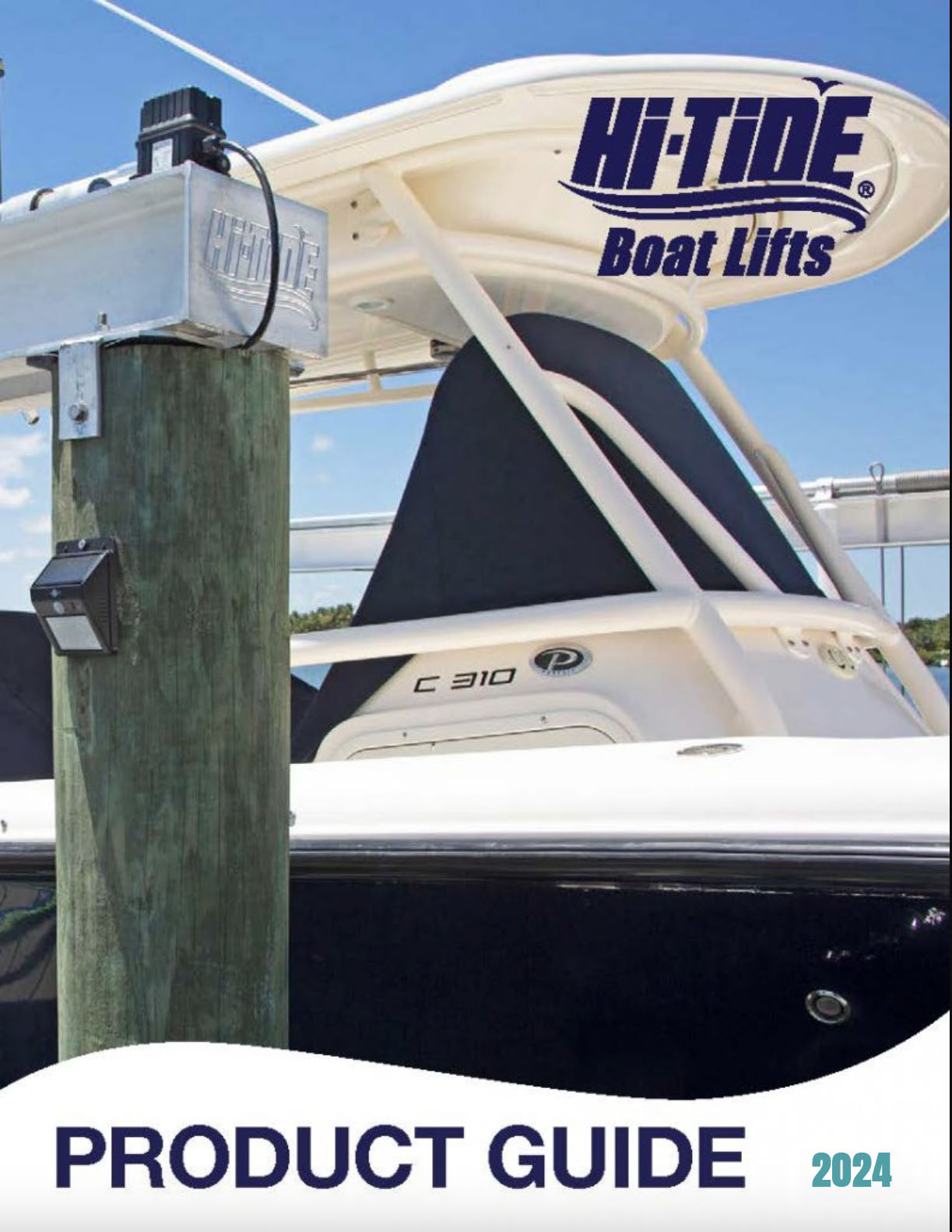
Hurricane Matthew brought us wind, rain and a fair share of destruction, especially along Florida’s coastline. If you are a boater with a vessel in the affected area, then we’re sure your anxiety level is through the roof (and stratosphere). Though it can be frustrating and stressful not knowing the fate of your treasured boat, let’s focus on what to do if there is hurricane damage.
What Do I Do if My Boat Has Hurricane Damage?
- Wait for the All-Clear: Don’t split for the coast until officials have given the all-clear. Docks themselves can be left damaged and structurally weakened, and coastal roadways are easily flooded. Don’t risk your safety to get to your boat a bit early.
- Insurance: Report your vessel’s damages to your insurance company as soon as they are apparent. Take extensive photos of the damage as evidence for your report.
- Survey and Assess: Though some damage may be easily spotted, it may be a good idea to get a damage assessment done by a professional surveyor in order to determine whether they are superficial or serious. Some difficult-to-pinpoint issues, from hull leaks to electrical problems, can be easily discovered by a professional.
- Check Before You Wreck: Even if your boat seems relatively unscathed, always check all systems, from top to bottom, before getting back on the water. The last thing you want is to discover a leak in the hull or fuel line well into your next trip.
We hope your ship made it through Matthew with minimal hurricane damage. However, if your vessel was damaged, it’s important to fully assess whether the damage is superficial or serious and report it to your boat insurance company as soon as possible. Of course, only venture out to your boat when you know that the coast is clear. Stay safe out there, boaters!
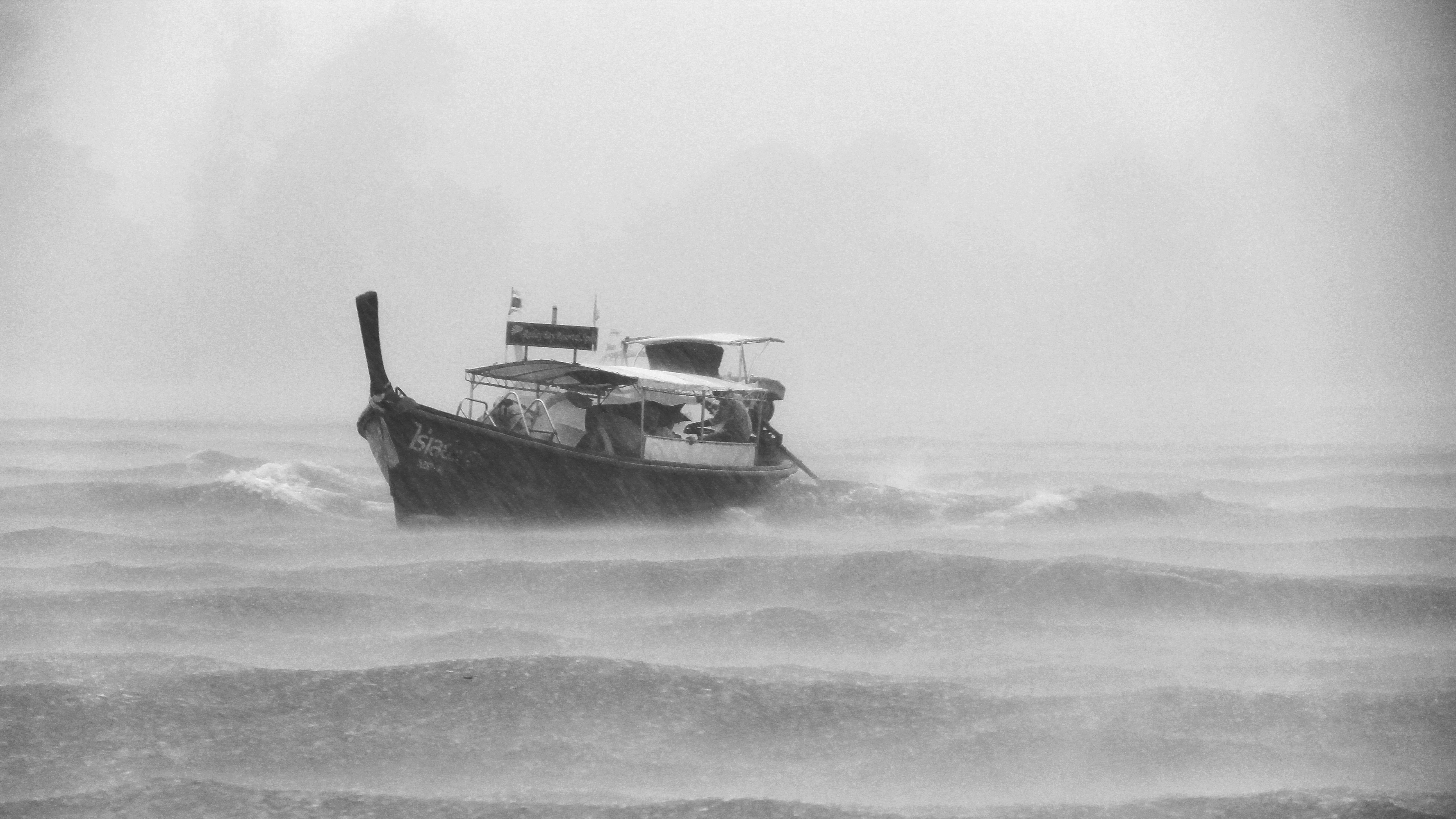
You’ve picked up those pesky groceries you’ve been avoiding getting all week and stroll out of the store to an unwelcome surprise. The sky darkens and, seemingly instantaneously, the rain pours on you, your whole wheat bread and farm-fresh eggs. Being caught in a storm is never fun, but transfer this inconvenience to the open water and amplify the danger caused by heavy rains, high winds and intense lightning.
How Can I Handle Being Caught in a Storm?
- What should I do first if I’m caught in a storm? Remain calm and focus on getting life jackets secured on all passengers and securing your deck by closing all watertight compartments, shutting doors and windows to avoid your ship taking on water. It’s also a smart idea to check your coordinates to assess whether your ship is in danger of running ashore, as well as figure out how best to navigate to safety or, in worst case, know where to report an emergency.
- What should I tell my passengers to do to remain safe on my boat? Get your passengers to either sit low in the boat or remain below deck to avoid the winds and waves knocking them overboard.
- How should I drive my boat in a storm? Your instincts may tell you to jet out of the rough weather as fast as possible, but this is extremely dangerous. Experts recommend slowing to the speed of the sea itself in order to avoid loss of control.
- What do I do if my engine dies after being caught in a storm? If you cannot make it safely to shore and your engine dies, anchor your ship, turn on your lights, secure all emergency safety devices and be ready to radio the coast guard to signal for help if conditions worsen.
If caught in a storm, never panic. Keeping a clear head and relying on training and preparation can save your ship — and maybe even your neck. Do a bit of preparation and always keep a close eye on the weather whenever you hit the water. If you’re concerned about keeping your ship safe when it’s docked, Hi-Tide Boat Lifts can prevent the damage caused by getting caught under or hitting the docks. As always, stay safe and have a fun (hopefully sunny) time on your next boating adventure.
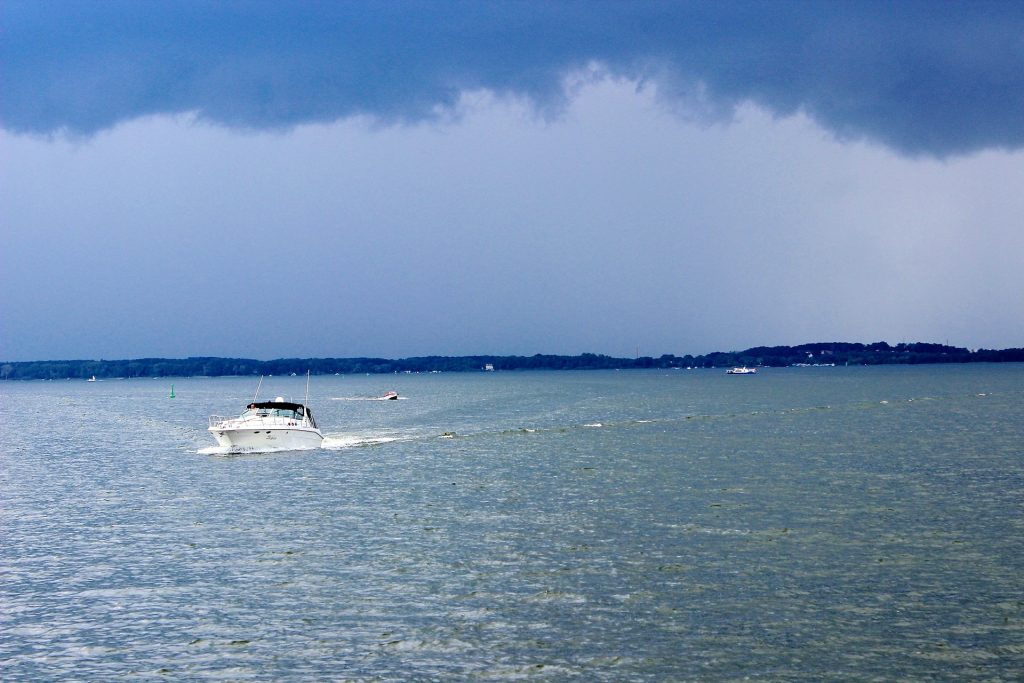
If you are like many boaters (ourselves included), you let very little come between you and a day on the water. Unfortunately, a bout of bad weather can throw a monkey wrench into your plans for a relaxing boating trip. Especially in the summer months, weather can change on a dime.
How to Spot Bad Weather While Boating
- Did I check the forecast? It may seem redundant, but always check the forecast just before embarking on your trip — yes, even if you checked it just the night before. As we all know, meteorology can be a bit of a hit and miss science, and forecasts can change, well, with the weather.
- Can I predict bad weather by looking at clouds? An easy way to get a gauge on the weather is to see if the clouds are flat, puffy, or tall and dark. In general, it’s the taller clouds that can lead to dangerous winds, rain and lightning.
- Where can I listen to weather reports while on the water? Keep tuned to Coast Guard and NOAA Weather Radio All Hazards stations for regular broadcast updates.
- What boating apps can I download to monitor the bad weather? There is a multitude of options when it comes to monitoring the weather on your smartphone. Some popular apps include NOAA SuperRes Radar HD, Skipper, and Boat Weather. There are many free and paid premium choices, so shop around to find the perfect app for your specific needs.
As we often say here at Hi-Tide Boat Lifts, preparation is the key to safety. Always keep the necessary safety gear aboard, complete regular commissioning checklists and continually monitor the forecast before and during your trip for signs of bad weather on the horizon. Though boating is great fun, if there’s even the possibility of bad weather rolling in, it may be better to err on the side of safety and hit the water when you, your passengers and vessels are in the clear.
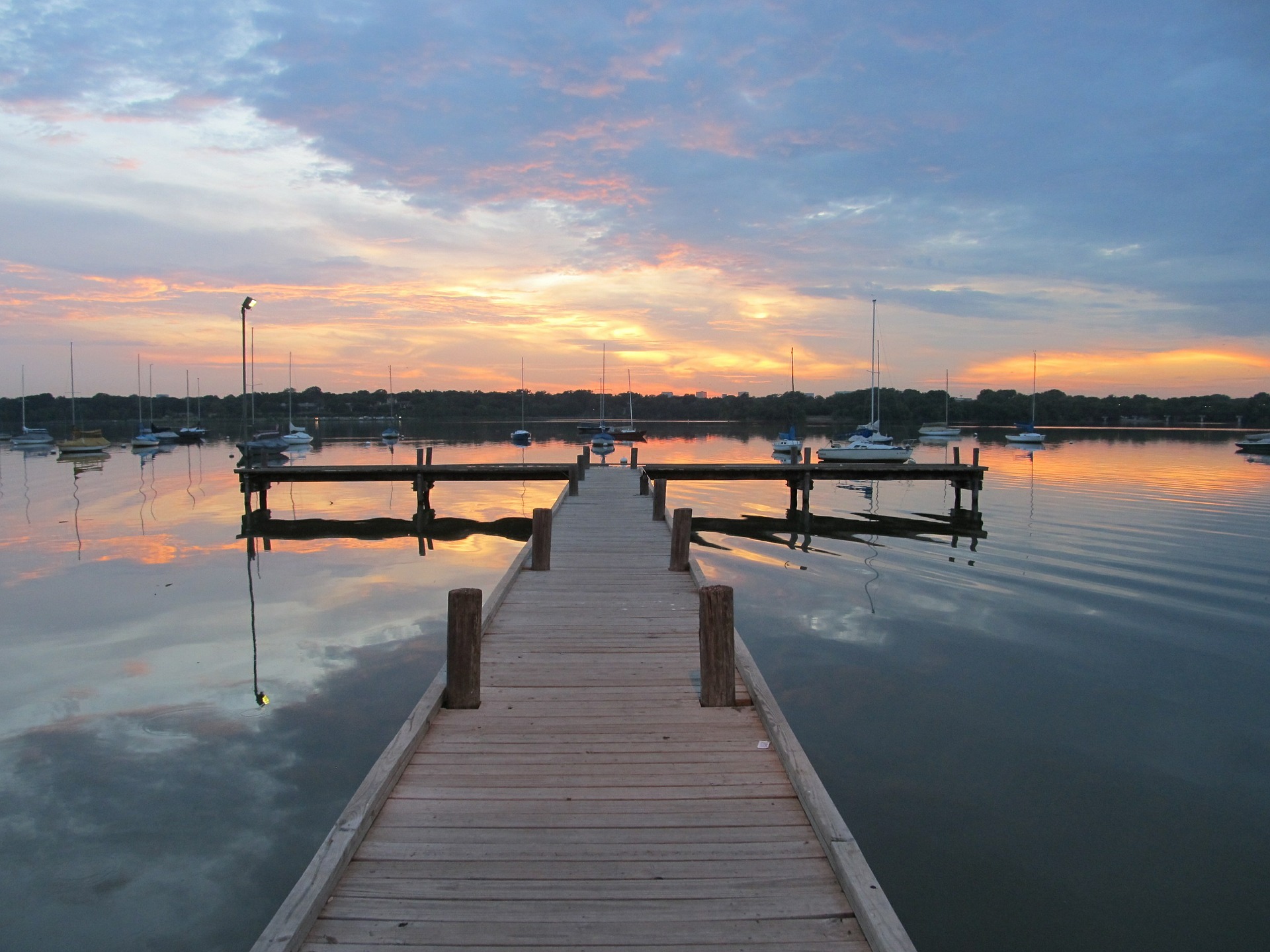
Boating is Texas is alive and well, with thousands flocking to popular beaches, bays, rivers and lakes for some world-class fishing or scenic cruising in the Lone Star State. If you’re a local or simply visiting Texas for a bit of leisure time, make sure you know these quick takeaways before hitting the water. From age requirements to education courses, these must-learn facts can help you chart your course before heading into unknown waters.
5 Considerations Before Boating in Texas
- Who to call during a boating accident? If you are involved in a boating accident that results in injury (requiring treatment beyond first aid) or death, or causes damages to property in excess of $2,000, you must report it to the Texas Parks and Wildlife Department (TPWD). You only have 48 hours to report an accident resulting in a fatality, but 30 days to report less serious accidents.
- Where can I complete my boating education? To legally operate a boat or PWC with more than 15 hp, you must first complete a boater education course, unless you were born before September 1, 1993.
- Can I drink while operating a boat? Open container laws do not apply to watercraft. However, operating a boat while intoxicated is a crime that could result in a driver license suspension, fines, or even jail time if involved in an accident while intoxicated.
- What identification do I need to carry while boating? Boaters must carry a picture identification card, as well as a boater certification card (if applicable).
- What’s the minimum age requirements for boating? Though boating in Texas can be fun for all ages, operators of vessels with more than 15 hp must be at least 13 years old. The same applies for windblown vessels of more than 14 feet.
The TPWD is a fantastic source of info for first-time boaters in Texas, so we highly suggest starting your research there if you have any questions about your next boating adventure. Texas is known as a big state, but also one that’s full of variety. Take advantage of that variety by exploring all the beautiful state has to offer, both on and off the water.
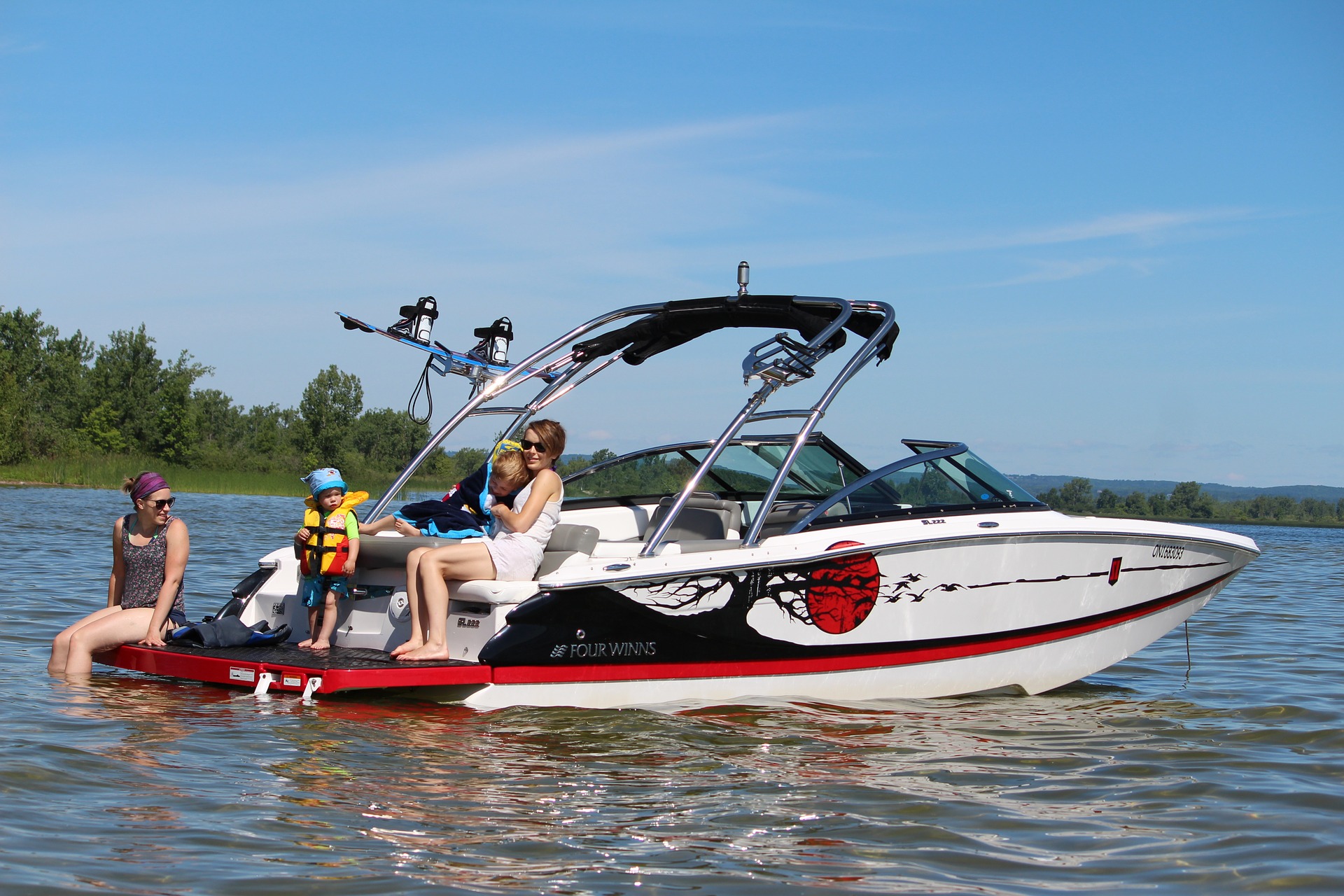
It’s no secret — boaters will find any and every excuse to hit the water for a day of fun with friends and family. Even though any experienced boater has more than a few “valid reasons” why this weekend should be spent cruising down their favorite waterways, we have a few more to add to your list.
Did you know? Boating has some legitimate health benefits you should consider.
The Health Benefits of Boating
- Vitamin D: An unfortunate reality of many Americans’ work lives is that it often involves countless hours under the humming, harsh glow of fluorescent lights. Few of us are fortunate to spend much of our waking hours in the sun, so getting outside after work, while on vacation or on the weekend is definitely a treat. Soaking up the sunshine (safely) can help strengthen bones, fight disease and combat depression.
- A Break from Technology: Though cell phone addiction isn’t officially recognized by the mental health textbooks, it’s a very real phenomenon and one that can cripple us without us even realizing it. If you are constantly palming at your pocket or purse to check your Twitter or Facebook, you may be in need of a little break. Boating in the perfect excuse to put the phone away and live in the moment, enjoying the natural beauty all around you.
- Family Time: There are real health benefits to spending some quality time with friends and family. From stress reduction to contagious healthy habits that your fit friends may impart on you, enjoying time on the water with loved ones is all positive. Also, take into consideration that the health benefits are also shared with those you are spending time with as well, such as your kids, who get more time with Mom and Dad, or your friends, who can be relieved of depression by getting on the water with their buds.
- Fitness: Looking for a low-impact, full-body exercise that is fun to do even on the most sweltering of summer days? Swimming may just be the miracle workout you’re looking for. Even many water sports are great, unconventional ways to stay active and fit while having fun in the sun.
Though you may not need more reasons to take your next boating trip, we hope the above health benefits may help to make convincing your friends or family that it is, indeed, time for another excursion on the water. Stay safe, stay healthy and we’ll see you on the water.






